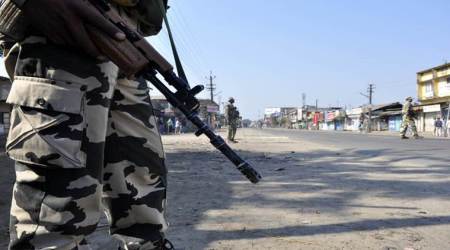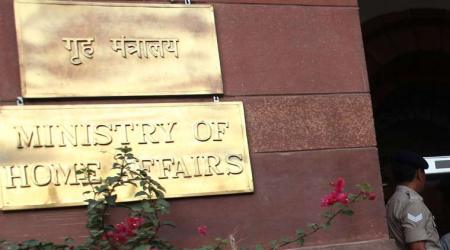 Ministry of Home affairs. (Image For representational purpose)
Ministry of Home affairs. (Image For representational purpose)
Amid the standoff on the eastern border between India and China, the Union Ministry of Home Affairs (MHA) has cleared a proposal to construct a road from Marsimik La to Hot Spring as a “standalone project” in Ladakh to ensure access to “vantage points” for security forces on the northwestern border between the countries. The development comes ahead of the meeting between BRICS nations in China, being attended by National Security Adviser Ajit Doval.
Sources in the government said the project worth Rs 120.58 crore has been sanctioned by the MHA but is awaiting a nod from the Finance Ministry. The 32.9-km road will help connect security forces to remote areas to the east of Ladakh region, which has earlier witnessed aggression from the Chinese forces, officials said. The project, officials added, is part of the India-China Border Road-I (ICBR-I), where India is building 73 other border roads.
MHA sources said the need for this “standalone” road was initially proposed by the Indo-Tibetan Border Police (ITBP), which guards the India-China border. At 18,634 feet, Marsimik La is one of the highest motorable passes in the world but has no “pucca” road on the Indian side — reports say the border is accessible from the Chinese side.
The two countries have been engaged in a standoff in Doklam area, along the India-China-Bhutan tri-junction, for the last three weeks after a construction party of the Chinese army attempted to build a road in the region. India and China share a 3,488-km-long border from Jammu and Kashmir to Arunachal Pradesh. Of this, Ladakh shares a 224-km Line of Control and a 955-km Line of Actual Control with China. In 2016, the region had seen a standoff after Chinese People’s Liberation Army personnel entered an area near Demchok sector, 250 km east of Leh, and stopped work on a civilian project. The irrigation canal was being built under MNREGA scheme for linking a village with ‘Hot Spring’ in the area.
Officials said of 73 roads, 46 are being constructed by the Defence Ministry and 27 by the MHA. “These roads were scheduled to be completed by 2012-13 but the delay is due to a limited working season, combined with logistical issues due to high altitude, rugged and difficult terrain, natural calamities, delay in forest and wildlife clearances, and land acquisition,” MoS (Home) Kiren Rijiju said in a statement before Parliament recently.

